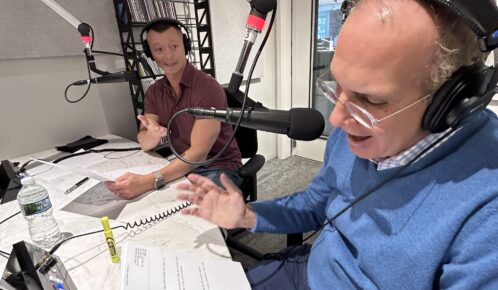A personal injury happens when you suffer harm because of the actions or inactions of another person. Personal injury examples include drivers causing serious accidents by ignoring traffic law while driving, doctors offering substandard treatment, and businesses failing to remove hazardous conditions on their premises. You must demonstrate that the other party was directly liable for your injuries to maximize your chances of recovering compensation.
Table of Contents

A personal injury can be physically, psychologically, and financially draining. Having a personal injury lawyer on your side can give you the time and peace of mind to concentrate on your healing while someone else handles the legal side of your claim.
Schedule a free consultation with our personal injury lawyers at Ankin Law if you have sustained an injury in an accident in Chicago, Illinois. Call 312-600-0000.
Types of Personal Injury Accidents
Knowing the different types of personal injury accidents can help you determine whether you have a claim and the steps you need to take to pursue compensation. Common personal injury accidents in Chicago, Illinois include:
Motor Vehicle Accidents
Motor vehicle accidents account for the biggest share of personal injuries in Illinois. In fact, 83,783 people sustained injuries in motor vehicle accidents in 2022. These accidents occur daily due to speeding, driving under the influence of alcohol or drugs, distracted driving, careless driving, and hazardous road conditions. Common injuries sustained in motor vehicle accidents include broken or fractured bones, bruising and scarring, chest injuries, whiplash, and spinal cord injuries.
The injured party in a personal injury case involving a car accident pursues compensation from the liable party. The liable party could be another motorist, the manufacturer of the vehicle or parts, or a government agency in charge of maintaining that roadway.
Premises Liability Accidents
This category covers accidents that occur on premises. Slips and falls are the most common accidents in this category. Other examples include an object falling on your head or getting injured while you are a customer or guest on another person’s property.
On-premises accidents happen when objects in customer pathways result in serious falls, improperly arranged objects fall on customers, and employees attack or assault customers. They may also occur when business and property owners fail to keep staircases, elevators, and escalators in good working condition or warn visitors of unsafe conditions within the property.
Generally, you must have been a customer or legally allowed to be on the premises to be eligible to pursue compensation for your injuries. Trespassers may be ineligible to seek compensation for injuries occurring on someone else’s property.
Medical Malpractice
Medical malpractice happens when a medical practitioner offers you care that is below the established standard of care, and you get injured as a result. Action and lack of action can amount to malpractice.
You may have valid grounds for medical malpractice if a medical professional did not act when another doctor with similar education and training would have acted under the same circumstances. Similarly, you may have a valid medical malpractice claim if the medical professional treated you, but offered treatment that is below the standard of care a doctor with the same training would have provided under the conditions.
Any healthcare professional with a legal duty to provide you with quality medical care and treatment can commit malpractice. These professionals include doctors, surgeons, pharmacists, radiologists, and anesthesiologists. Common medical mistakes that qualify as medical malpractice include misdiagnosis, wrong treatment, surgical errors, birth injuries, and anesthesia errors.
Product Liability Accidents
Product liability happens when you get injured by an unreasonably dangerous product. You do not have to be the one who bought the product to be eligible for compensation. Instead, you only need to demonstrate that the product had a design defect, manufacturing defect, or inadequate safety instructions or warnings.
Product liability claims can arise from various products, including defective medical devices, harmful pharmaceuticals, and faulty vehicle parts. You must prove elements of a product liability claim to increase your likelihood of recovering compensation. These elements include:
- You used the product correctly;
- The product was defective;
- You suffered an injury or loss because of using the product; and
- Your injury or loss directly stemmed from the defect.
Dog Bite Accidents
In Illinois, dog owners are strictly liable for attacks, bites, and other injuries that their pets inflict on others. As such, you can sue a dog owner for your injuries and damages, even if the owner was unaware the dog was vicious. A lawyer conversant with the Illinois Animal Control Act laws can help you file your case on time, skillfully counter the dog owner’s arguments, and obtain maximum compensation for you.
When Can You File a Personal Injury Claim?
Filing a personal injury claim does not require any waiting time. You can start the process immediately after your accident. You should, however, avoid filing too late.
The best time to file your claim is when you have carefully analyzed all the damages and losses resulting from the accident and determined the true value of your claim. You have also hired a lawyer who knows how personal injury law works, completed all the necessary medical treatment, and compiled sufficient evidence to build a strong claim.
Each state has its deadline for initiating a personal injury claim. In Illinois, for instance, the personal injury statute of limitations is two years from the date of the accident or injury. You will lose any opportunity to recover compensation if you miss the two-year deadline, unless valid circumstances that permit you to pause or extend the deadline exist in your situation.
Common circumstances that may allow you to pause or extend the filing deadline in Illinois include:
- Discovery Rule: Accident-related injuries may remain hidden until later. In such situations, the Discovery Rule permits the two-year filing deadline to start when you discovered or should have discovered your injury.
- Defendant Moves to Another State: The length of time the defendant was outside the state will not count in the filing deadline for your injury claim.
- Minors: If the injured party is a minor (below 18 years), the two-year filing deadline begins when the minor reaches 18 years.
- Mental Incompetence: The two-year statute of limitations pauses when a doctor finds the injured party mentally incompetent. The deadline will start running again once the mental incompetence is removed.
What Should You Expect From a Personal Injury Lawyer?
During the initial consultation, a lawyer who knows how personal injury law works will need to hear your account of the accident, who you think was to blame, and what injuries you suffered. The lawyer will review evidence related to your accident. Other things you can expect from your lawyer include:
Answering Your Questions
Your lawyer will respond to questions you may have regarding your case. The lawyer will guide you through the legal process, explaining the laws relevant to your case and what you should expect at every step.
Investigating Your Case
Proper investigation is instrumental in settlement and trial preparation. A personal injury lawyer may perform in-person investigations or outsource the investigative work to an independent investigator. The lawyer or the investigator will locate and interview witnesses, obtain accident scene photos, video footage, and diagrams, and get copies of police reports.
Your lawyer may have the accident scene reconstructed if there are no pictures or videos of the accident or if witness statements are contradicting. A comprehensive accident reconstruction report can persuade an insurance company to propose a more generous settlement offer. It may also convince the court to rule in your favor.
Communicating and Negotiating With Insurance Companies
Insurance adjusters of the liable party’s insurance company will want information from you. They may call you and ask for a recorded statement. Your lawyer may decline the adjuster’s request to obtain information that might hurt your claim. The lawyer may let all relevant parties know that you have legal representation, and any future contacts must be made through your lawyer.
Your personal injury lawyer will commence settlement negotiations by sending a demand letter and other supporting documentation to the insurance company. The letter will describe the circumstance of your injury, name the liable party, and propose an amount that would be enough to cover your medical bills, lost income, pain and suffering, and other related losses.
Your lawyer will negotiate with the insurance company’s adjuster and legal team, pushing for the highest possible settlement. The lawyer will take your case to court if negotiations do not generate an acceptable payout.If you have been injured due to someone else’s negligence, personal injury lawyers at Ankin Law can work closely with you to secure sufficient compensation. Contact us for a free case evaluation.



